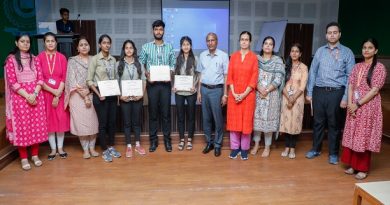Parliament Passes Immigration & Foreigners Bill 2025
New Delhi: The Immigration and Foreigners Bill 2025 was passed in Parliament, with the Rajya Sabha giving its final nod after the Lok Sabha cleared it on March 27. The bill, which aims to regulate immigration and the stay of foreign nationals in India, has sparked strong opposition, with Congress and TMC members walking out in protest.
The government defended the bill as a necessary step to streamline immigration policies and enhance national security. Minister of State for Home Affairs, Nityanand Rai, stated that the bill was developed after three years of research and consultations. “Our immigration system was outdated and scattered across multiple laws. This bill unifies and strengthens our framework, ensuring a world-class immigration system,” he said.
One of the key provisions of the bill is the establishment of a centralized Immigration Bureau, which will be the sole authority on immigration-related matters. This move is aimed at reducing bureaucratic inefficiencies and aligning India’s policies with global standards. The bill also introduces stricter visa regulations and background checks for foreign nationals seeking long-term residence in India.
However, the Opposition has alleged that the bill will be used for political purposes, particularly in states with large immigrant populations. Congress leader Gaurav Gogoi argued that the bill unfairly targets certain communities, while TMC MPs accused the government of attempting to manipulate voter demographics by tightening control over foreign residents. “This is not about security; it’s about political gain,” said a senior Congress leader.
Despite opposition protests, the bill was passed by a voice vote in the Rajya Sabha, signaling strong government support. The new law is expected to bring changes in how foreign nationals enter, stay, and work in India, with stricter documentation requirements and enhanced border security measures.
While the government insists that the bill will benefit India’s education and research sectors by allowing skilled professionals to enter legally, opposition parties and human rights organizations are expected to challenge certain provisions in court. With this legislation now in place, authorities will soon begin implementing new immigration rules across the country.




